UPDATE to version 2025

The new year is here (at least for the part of our studio's team that's based in Japan): a good time to talk about moving talent, seeing the wine sales fall off the cliff and update on the conferences that we plan in the newly minted year. Here's to another circle around the sun, together!
Borders & Barriers
A recurring theme of 2024 was the increase in friction for moving talent. To a lot of sectors, this is a non-issue – as their talent pools are mostly localized. For the creative industries like video games though, the mobility of talent and – the ability to access a global pool at a short notice – are the crucial factors.
As people explain the thriving games cluster in Montreal, "we're here not because it's cheaper, but because we can find the right talent" (speaking of Montreal, their pedestrianization program has been a great success, another reason for the expat talent to stick around).
These days, the freedom of movement is challenged on both sides: Belarus, the birthplace of globally successful games companies with billions in annual revenue, made the process of passport renewals abroad impossible, while Ukraine doesn't allow male talent of military age to leave the country, even when they have dual citizenship.
On the other side, a number of EU countries stopped issuing any sort of visas to talent with Belarusian or Russian passports, whether you're a lawyer or an engineer; meanwhile, Chinese and Indian nationals face uncertainty in the US. The British political discourse remains tainted with calls to make it harder for skilled migrants to enter the country (with one of the constantly changing prime ministers celebrating the fact that nurses can no longer bring their children with them), and where Italy pours money on the play pretend of sending refugees to Albania, the not-so-great Great Britain picked Rwanda as its measure of shame.
More recently, Austria joined the chat with a (hardly feasible) populist call to deport up to 40K Syrian refugees the moment Damascus was taken over by the people who, let's be clear, are still on the list of terrorist organizations.
Depending on where you were born and your skin color, this sort of news may seriously affect your plans for where to move for work once your current project is wrapped: our industry's talent doesn't exist in isolation; people have friends and families, and it doesn't take a lot to cast a sizable shadow into one's future in a specific location.
In 2024, migration issues – and the sort of support that a studio is willing to provide to its valuable talent – gained significantly more weight; reflecting this, the regional law firms that managed to align with this change , built closer client relationships.
Vox populi – or not really?
In case you wondered if the rising barriers reflect the desire of the "common people" channeled by the populist parties... the opposite seems to be the case:
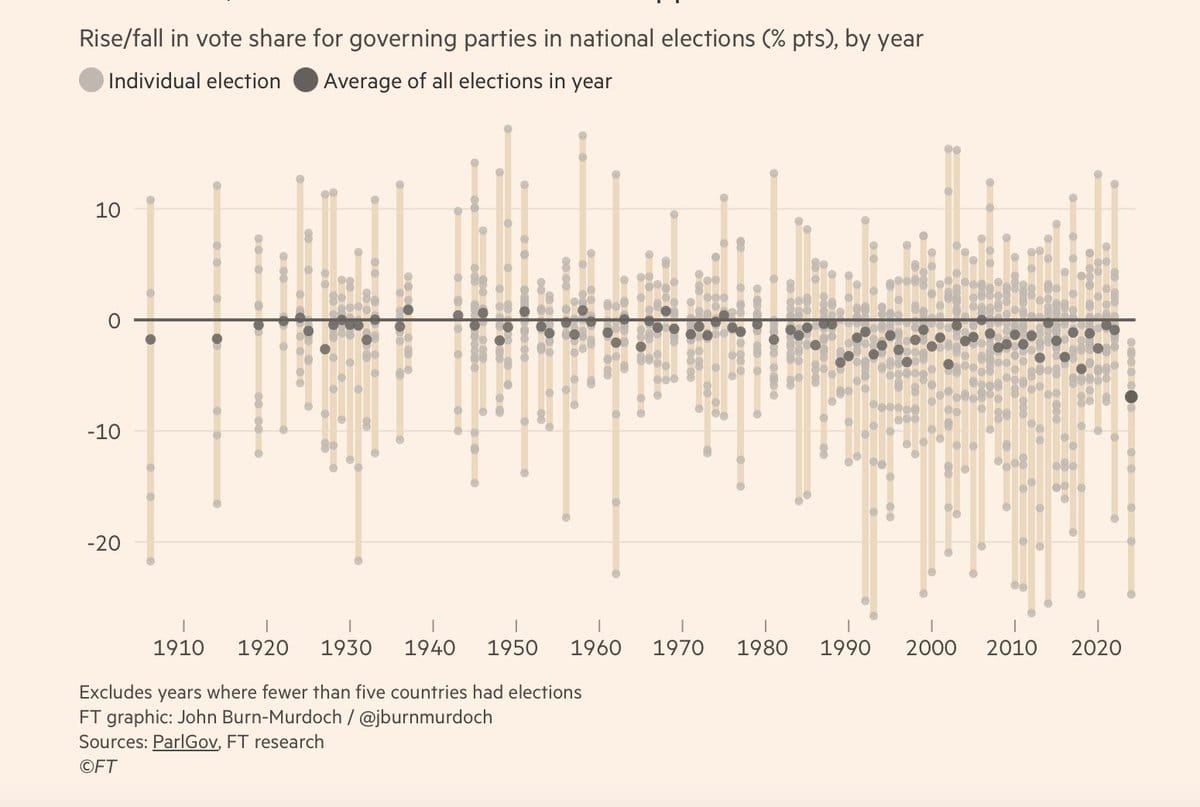
This article highlights the disconnect between what the parties in power push, and what the electorate actually thinks of their achievements (with a caveat that FT's position of "voters voted right because they shifted right" is challengeable: just as likely, the voting wasn't "for" but rather "against"; here in Lithuania, we had a newly minted party with a barebones program score 15% of the votes 8 months after it was created).
The situation in Poland reflects the same trend (in Thailand, you would say "same same"):
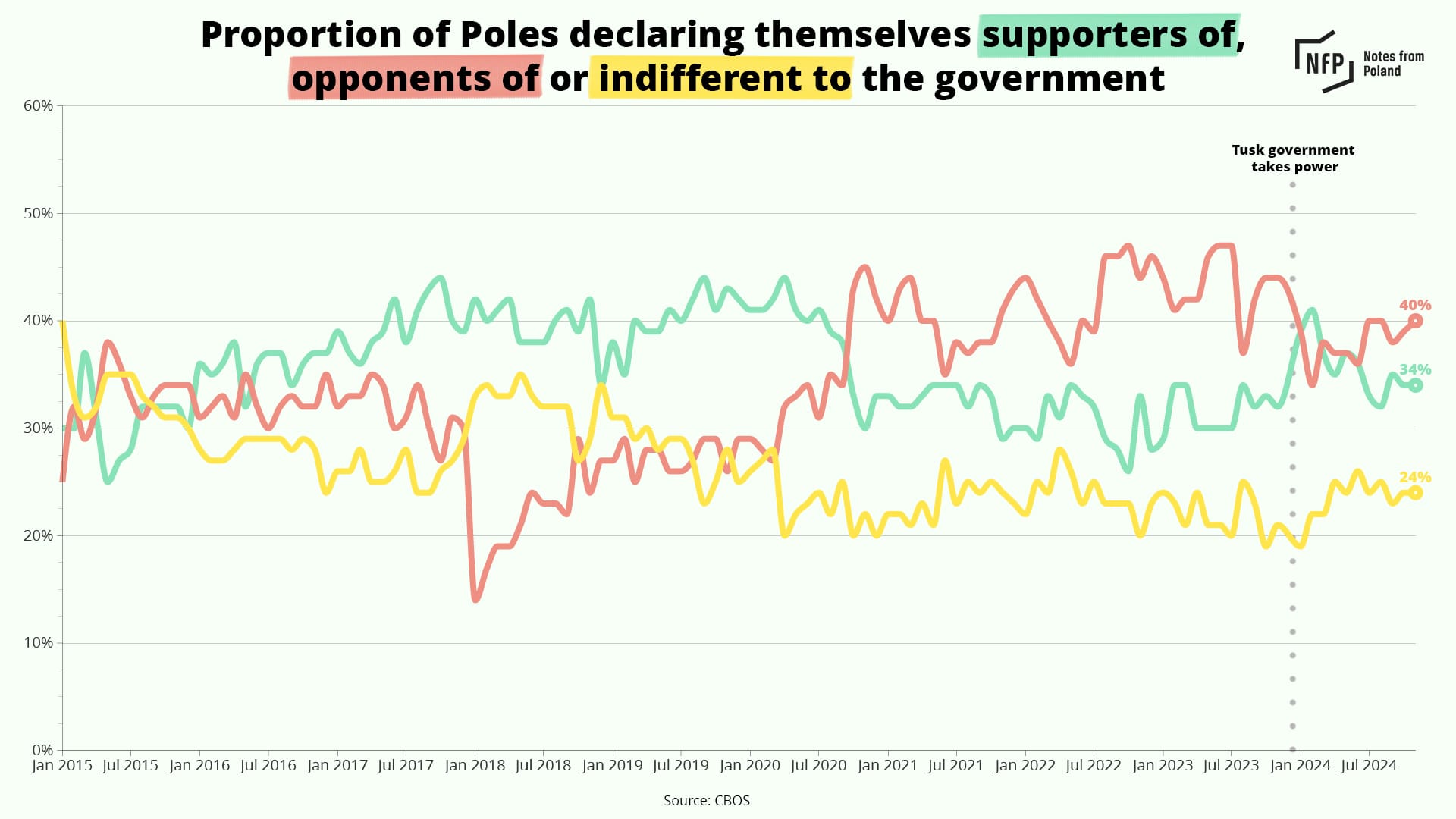
If you attended the 2024 Summit, you may remember the mock discussion over beers of which country we could all move to, to live happily: apparently, at this time every major region feels like their elected officials are bad (whether they call for martial law or not), and pretty much everywhere the political process keeps producing duds instead of solutions.
(un) Expected Winners
Given the turbulence of the last five years, which incentivized a lot of talent to move somewhere else (pandemics, wars, and a growing inequality), some countries were more successful than others in utilizing the opportunity to attract a bunch of tax-paying game developers.
In the developer community, conversations changed from cost of rent and availability of schools to levels of discrimination, predictability of migration process and prospects of naturalization.
Cyprus, Serbia and Poland, as well as to some degree Spain, UK and US (specifically for the top tier talent), capitalized on the migration of highly skilled industry workforce by maintaining predictable, non-discriminatory policies that provide clear path to permanent residency and citizenship – a crucial ask for someone making €50-100K/year, who normally has several job offers lined up.
Cyprus in particular comes as a winner of The Great Move (TM), scoring at the top of EU countries, per capita, in both the number of refugees from Ukraine, and the number of residence permits issued to talent from Belarus and Russia: imagine that, a European country that doesn't differentiate people by their birthplace!
As to the EU Blue Card system, Germany takes the prize, having issued over 85% of all Blue Cards in 2023. Close to 50% of all highly skilled talent arriving on Blue Cards to EU came from just 5 countries: India, Russia, Turkey, Belarus and Iraq (speaking of Turkey, the local indie scene recently scored two hits: Liar's Bar – 3 million players with an Early Access launch, 36.000+ positive reviews, and FFS – $1M+ at launch, 95% positive reviews).
Finally, at the end of the migration funnel we have the naturalization process that takes anywhere from 3 years (Cyprus, Serbia) to 10 years (Spain, Lithuania), with certain countries throwing curveballs along the way. This data is 2 years old, but it gives you an idea of where naturalization is a success and where talent moves out before they apply for a local passport.
In 2025, we can expect this dynamics to accelerate, as the relocated talent in senior positions brings more talent from their home pools: a backend lead who's happy in Belgrade today means three more developers in Belgrade in the coming year.
In the same week when a developer in Italy regretted losing an engineer to a Turkish studio (which, surprise, pays more!), and a Belgian producer said that his team struggles to find any network engineers locally (thus they're contracting an outsourcer in Australia, of all the places!), a Belarusian expat PM based in Cyprus told me in passing that he just hired 3 new front-end developers (take a guess on where they came from 😜).
In somewhat related news elsewhere: Ghana becomes visa-free for all African citizens from January 2025 (take that, the EU countries that re-introduced internal border controls!).
Asymmetric Hiring
Every successful studio that I know personally, is currently hiring – sometimes as contractors to get around the locked budgets, – but hiring nevertheless.
And yet a lot of people in the network are also looking for jobs.
The explanation is in the mismatch of the supply and the demand: what the studios need, are the people who deliver and have delivered before (whether it's in legal or in engineering); meanwhile, there's a lot of folks who outgrew the execution positions –but haven't made it (yet) across the river to the other shore.
This kind of mix of cost-sensitivity and low supply often results in remote jobs: if you can hire a bright engineer out of Moscow, who cannot move because of his aging parents with poor health – but who comes with an effective tax rate of just 10%, you'd be stupid not to. Similarly, where a studio may have demanded that a new hire moves to Berlin, and pays 40% tax while jumping through the hoops in search of an apartment, these days Paphos with just 17% total tax for high-skill workers and plenty of housing in the high-end segment, works just was well.
Remote hiring is is quickly becoming a matter of concern for the in-house counsels, and is poised to be one of the key topics for the program of the Summit On Tour III in 🇮🇹 Rome this April (suggested title: "Leave No Footprints Behind").
Legal Challenge VIII
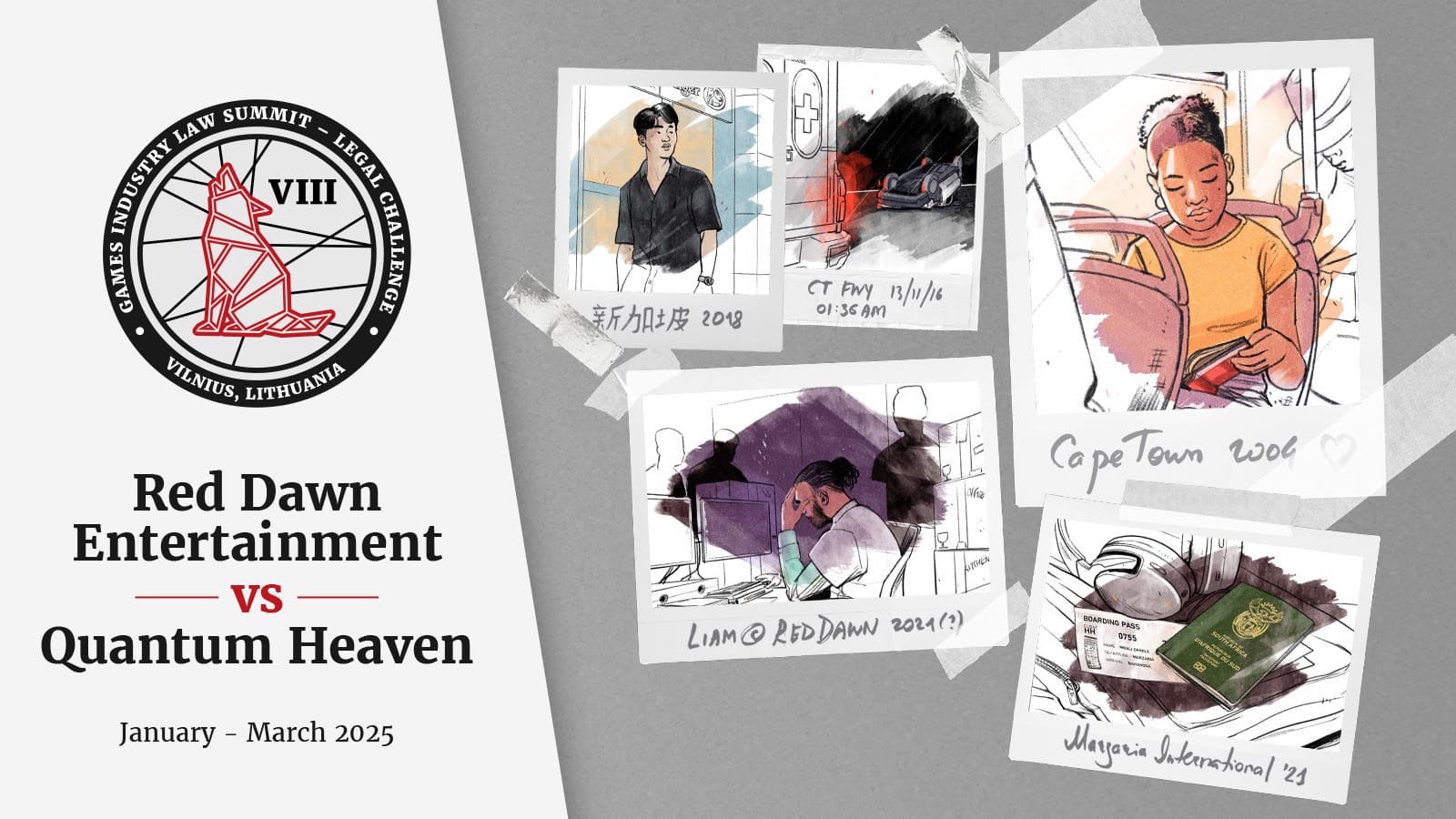
The 8th season of games industry's moot court is in the middle of its registration phase, with 14 teams enrolled so far (the first batch is listed here). Coincidentally, competitors represent 14 countries: a significant number of teams have people from different regions collaborating, powered by the same geo-agnostic attitude that makes our industry tick (another proof of the importance of being able to move talent across the border, if you needed any).
New this season: mentors and associated firms/schools. Almost every team has a veteran or an expert attached ('from Wargaming to Wiggin', oops, it's the same letter; Okay, let's try it another way: 'representing the whole alphabet of the games industry, from "P" for Pryor Cashman to "R" for Riot Games to "S" for Saikrishna & Associates to "T" for Tripledot Studios', now that's better!).
If you know associates or students interested in a moot case about cloning, we'll be happy to see more teams apply – especially from the under-represented regions! The registration ends on January 17 (first submissions are due a week later).
The power of 0% (not to be mistaken with 1%)
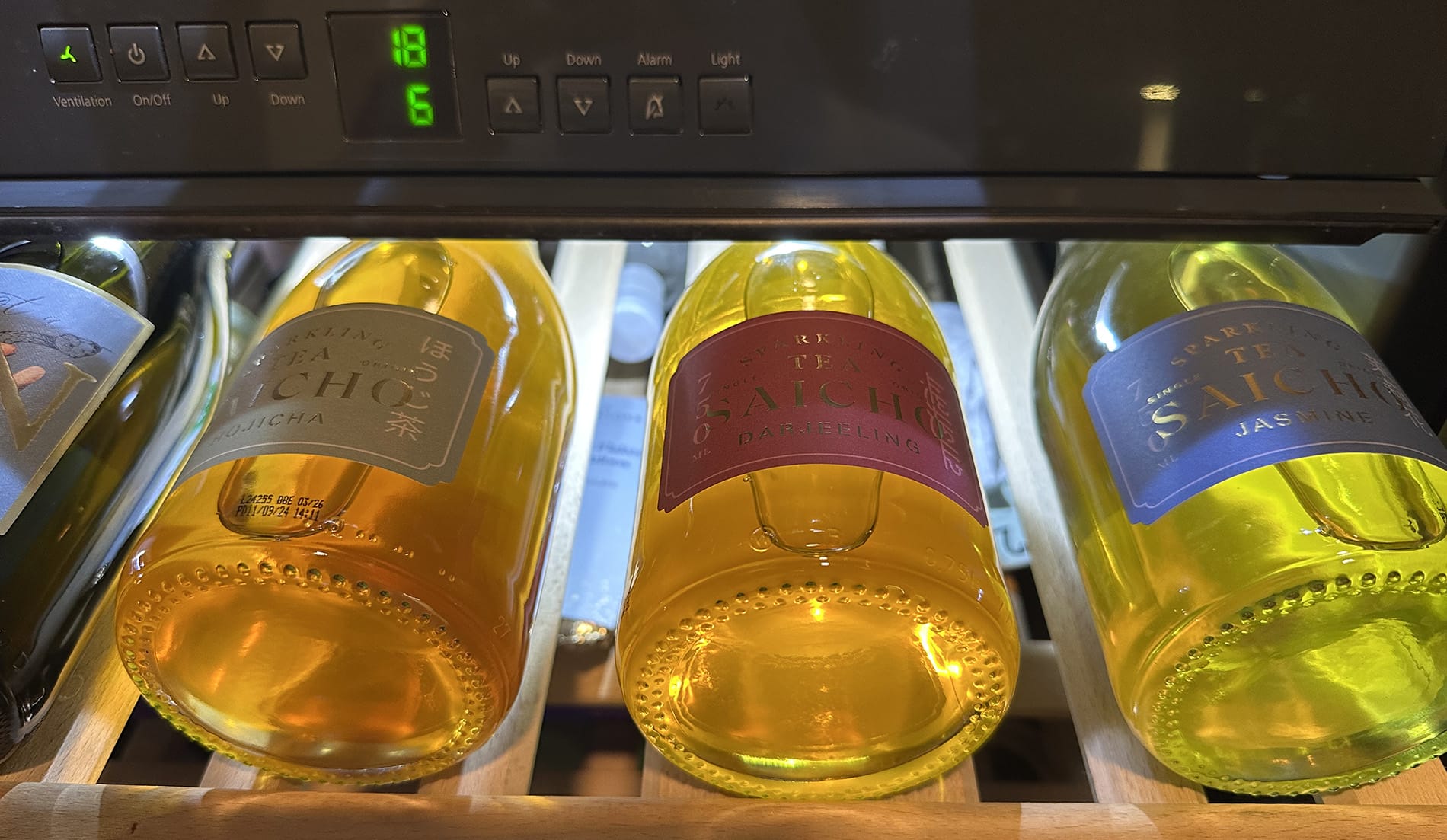
My kids are the main beneficiaries of the increased demand for 0% drinks at our conferences: now they get to taste whatever samples I bring home (and they love everything, imagine that!).
I'm happy to report that we found a producer of sparkling cold brew tea one level above the 2024 offering, and will offer not just Darjeeling and Jasmine blends, but also Hōjicha (ほうじ茶), which you will either love or hate.
Moreover, we're in the last stretch of sourcing the fancy new-age non-alco red and whites, as there's a whole crop of innovative producers in France, Spain and Germany that offer not so much a compromise/a replacement, but a product that stands on its own (if you fly Lufthansa, you may have seen some of these new brands in their lounges, such as UNDONE from Hamburg).
All of this to say that if you're following the de-alcoholization trend –
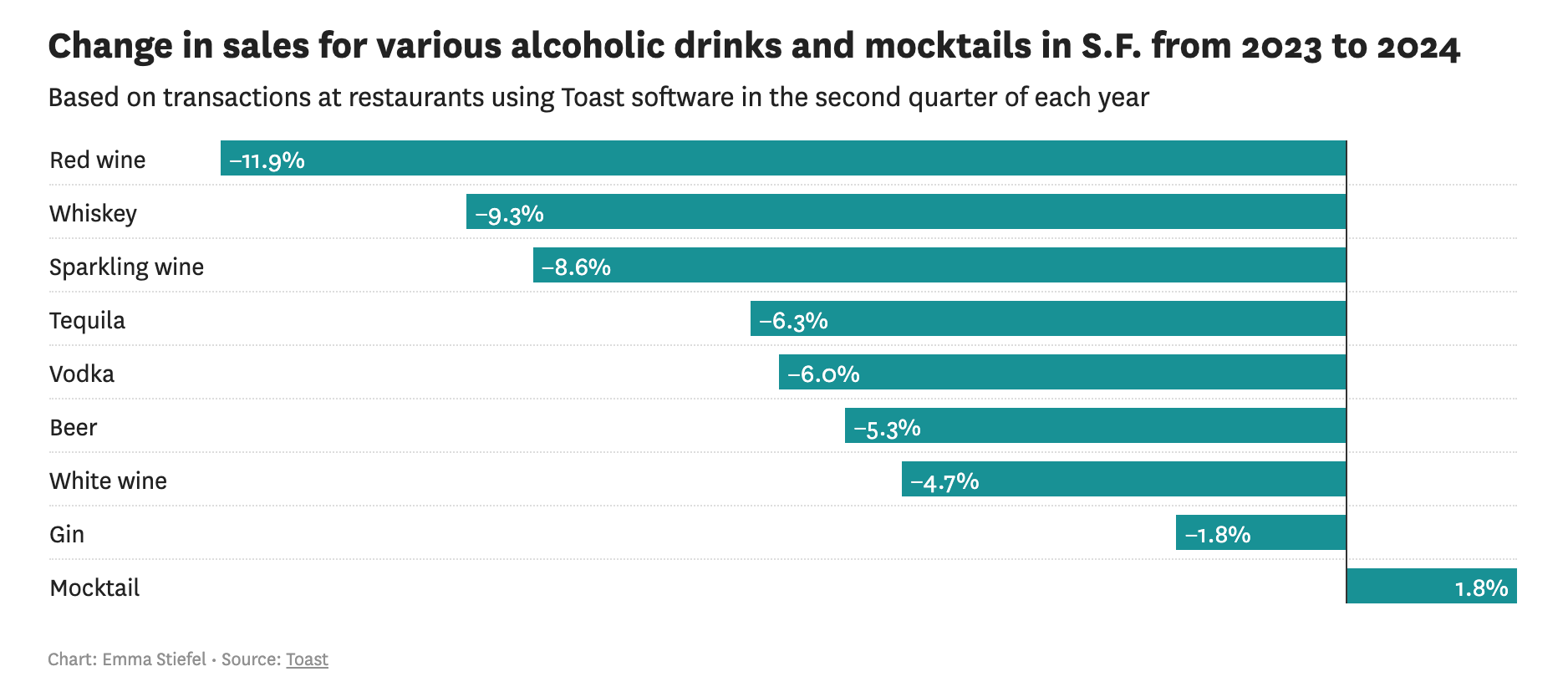
– then in 2025, we will have plenty of things to make you happy.
Zambartas
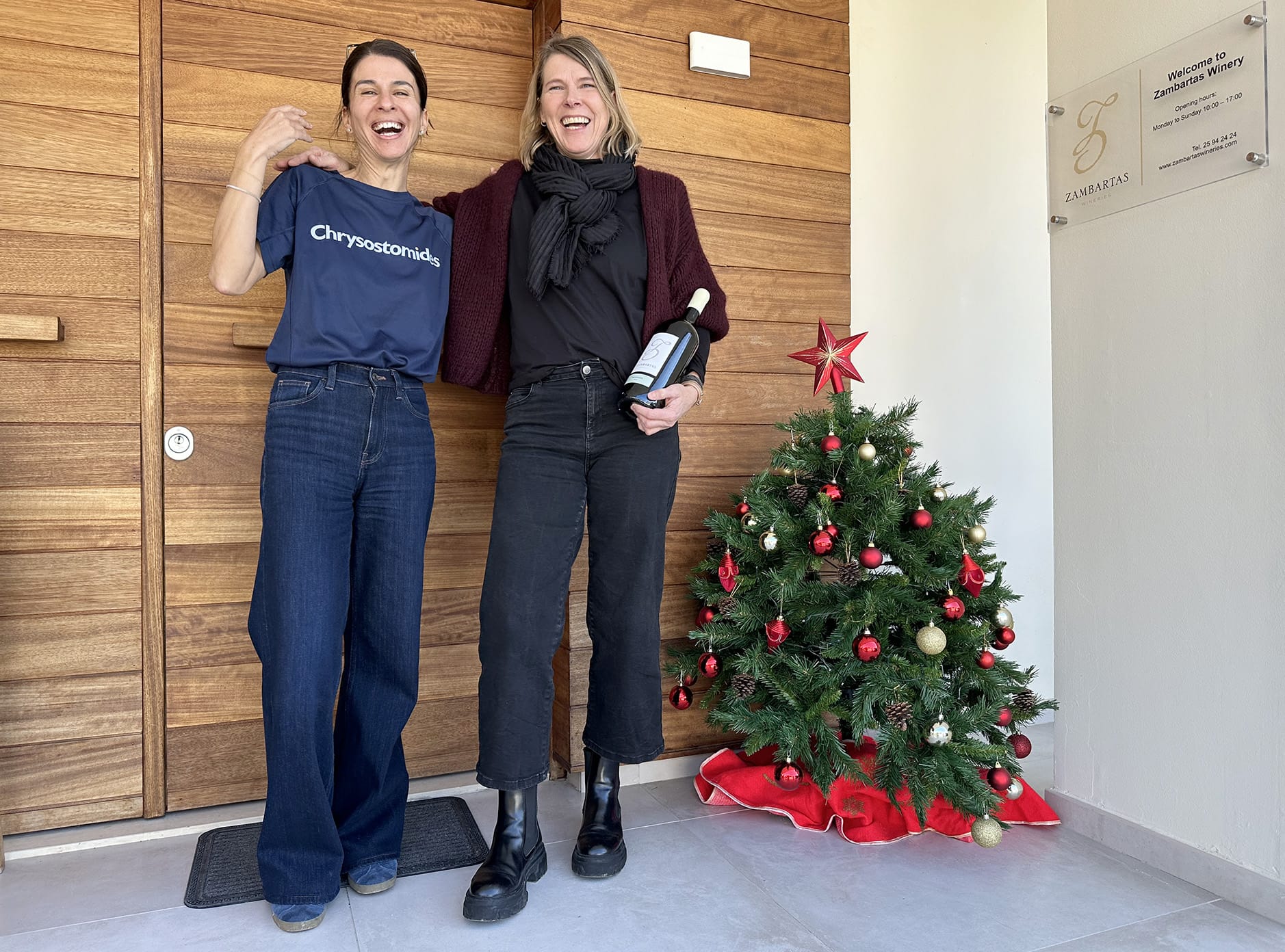
But everything in moderation, including moderation, right?
I recently had a chance to visit Zambartas Wineries, the makers of the white promara (πρωμάρα) that we served (and completely ran out!) in 2024, to catch up with their news, and to place the order for 156 magnums that we'll offer to you in Vilnius in 2025.
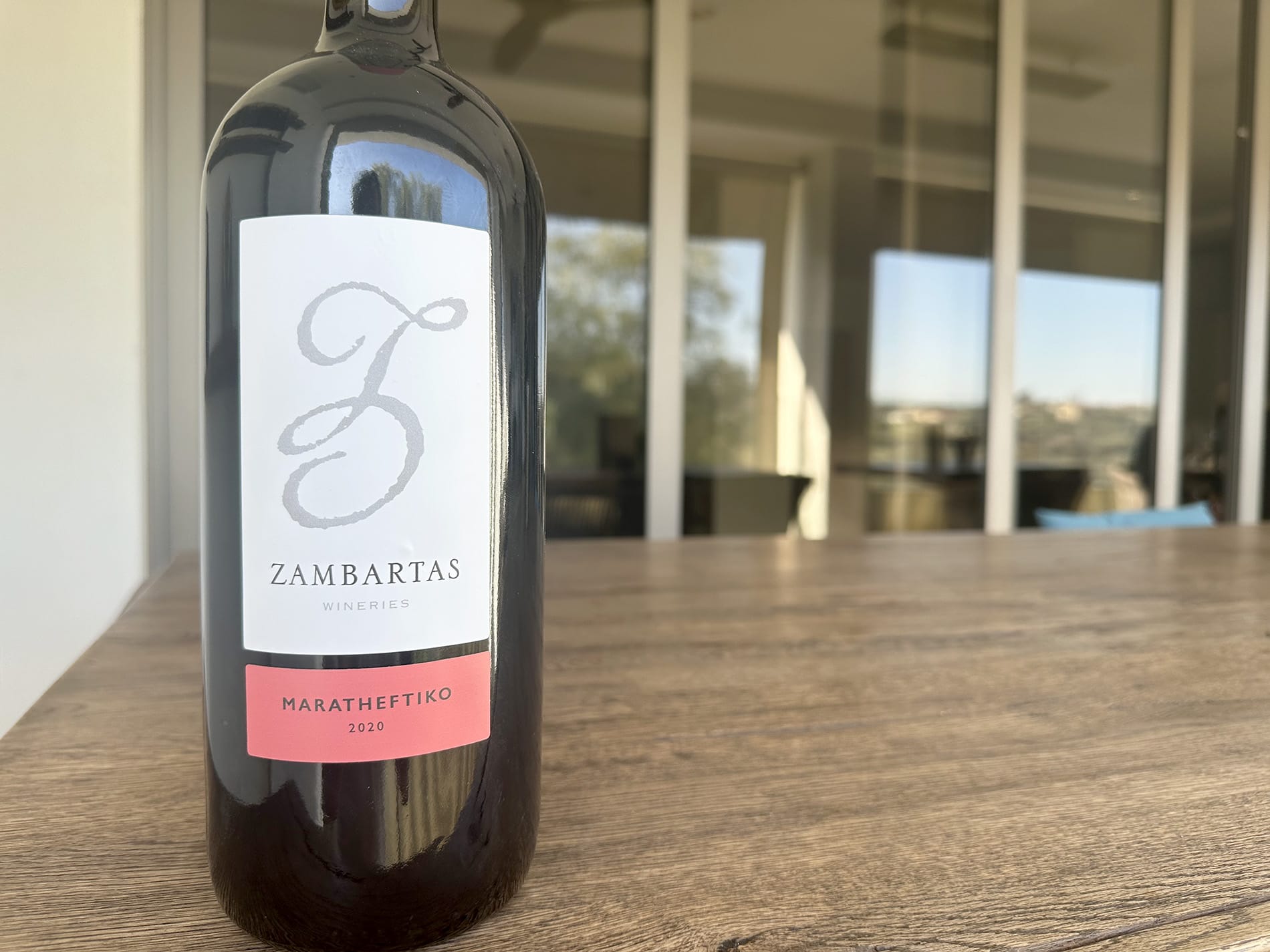
On the photo above, you can see a 5L bottle of the Cyprus-indigenous maratheftiko, which we commissioned from the winery as the prize for the first team that completes the Summit's Social Game in 2025 (I hope the team shares generously).

One more addition to the Social Game's prize fund in 2025 are the 6 bottles of Aphitheatro (if you read Greek, it's 'αμφιθέατρο'), shown above, made from another Cyprus-indigenous grape, xynisteri. This specific wine comes from the vines planted in 1945 (when the population of Cyprus was 1/2 of its current number), and there's just a few hundred bottles released this year.
To those of you who joined us in Limassol and made the tour to the winery:
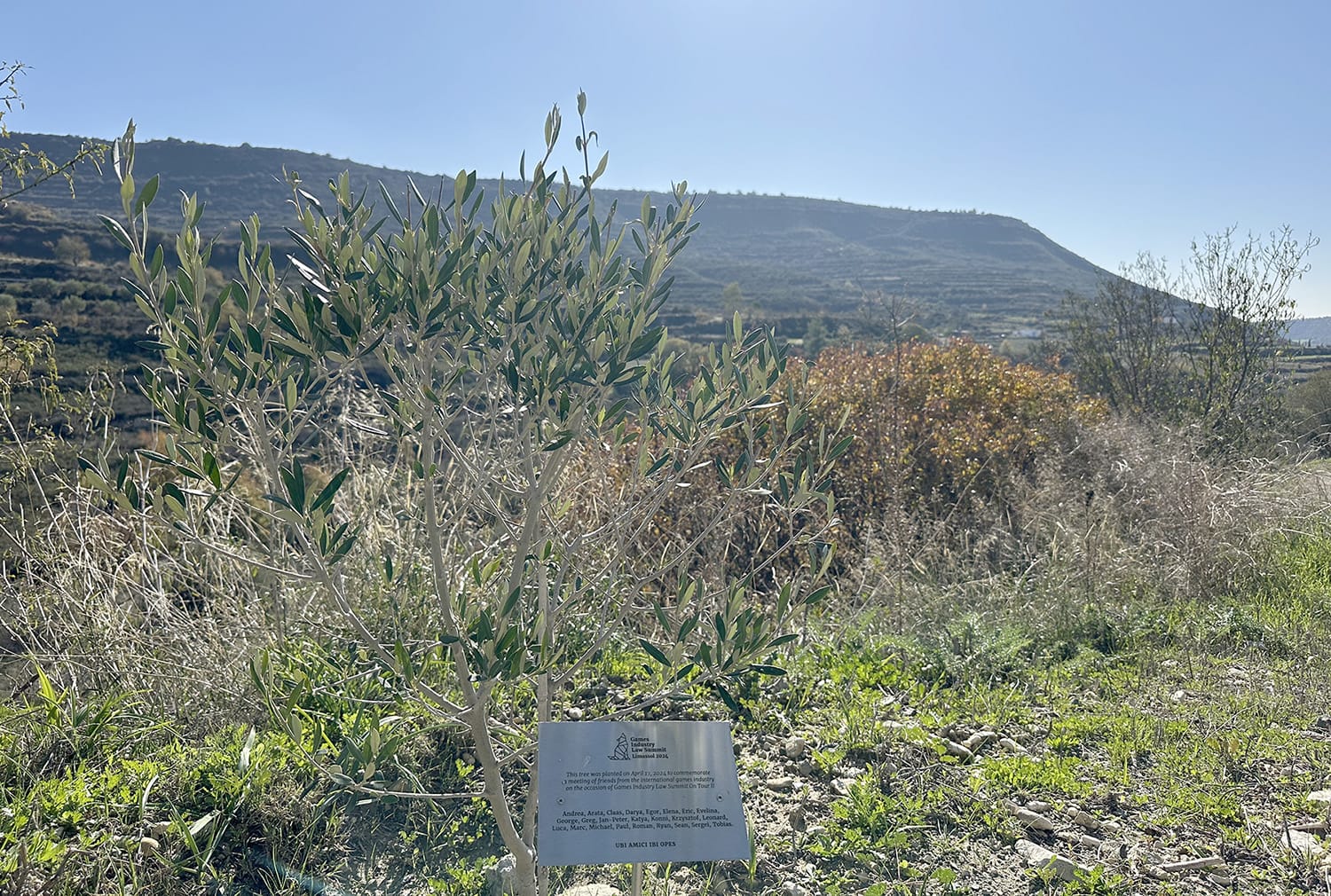
The olive tree that we planted together, is doing very well! It survived the hot summer, and already got trimmed in time for the winter season.
Commemorating another year of working together with Zambartas, Evelina Georgiades and I added another olive tree to the little stretch at the winery. Just about an hour away from this place, there's a grove of olives that's 800 years old (the trees still bears fruit), which puts things in the perspective: perhaps these 'Summit Olives' will still be there by the time Nintendo Switch 3 is released...
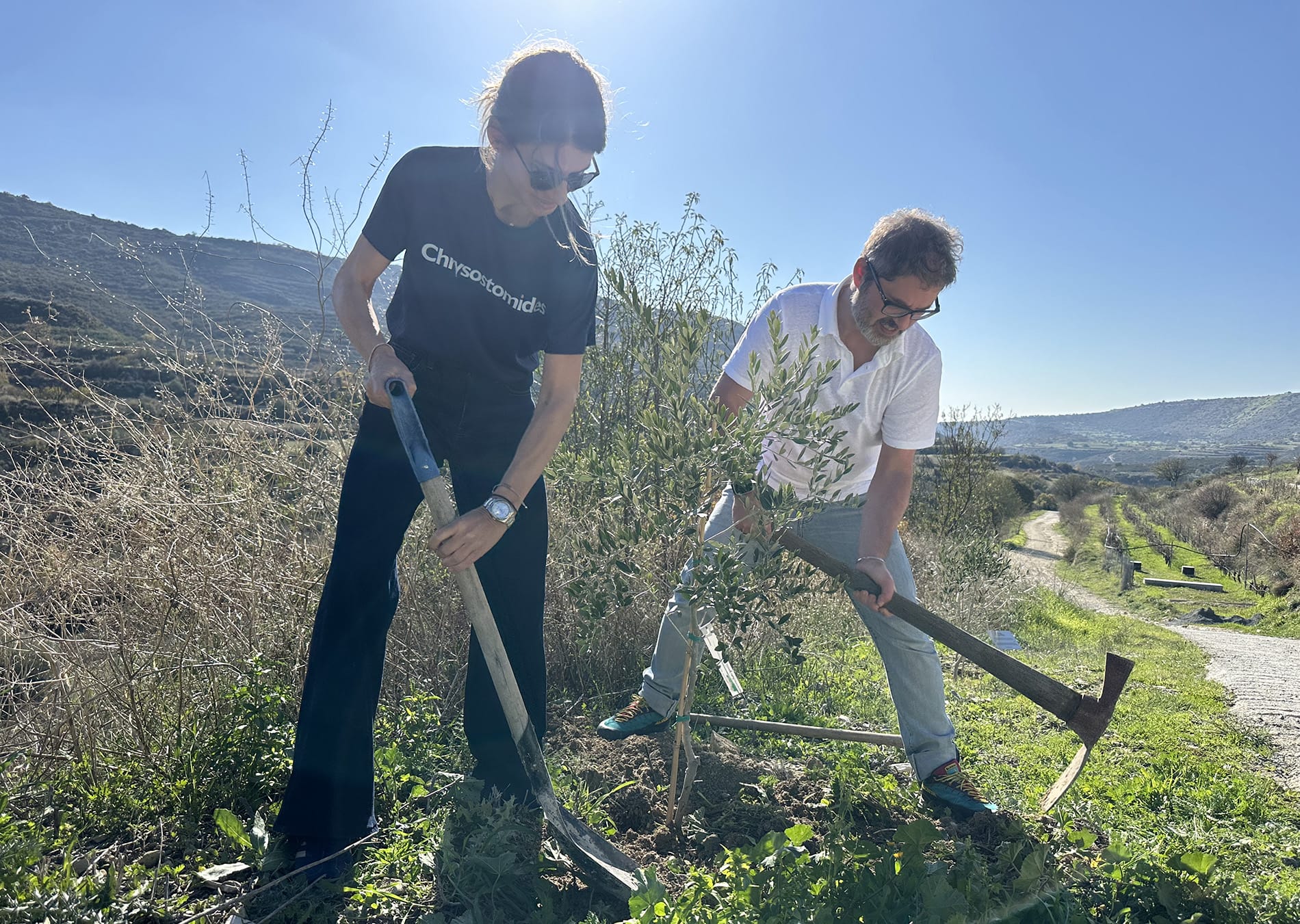
Valenciso
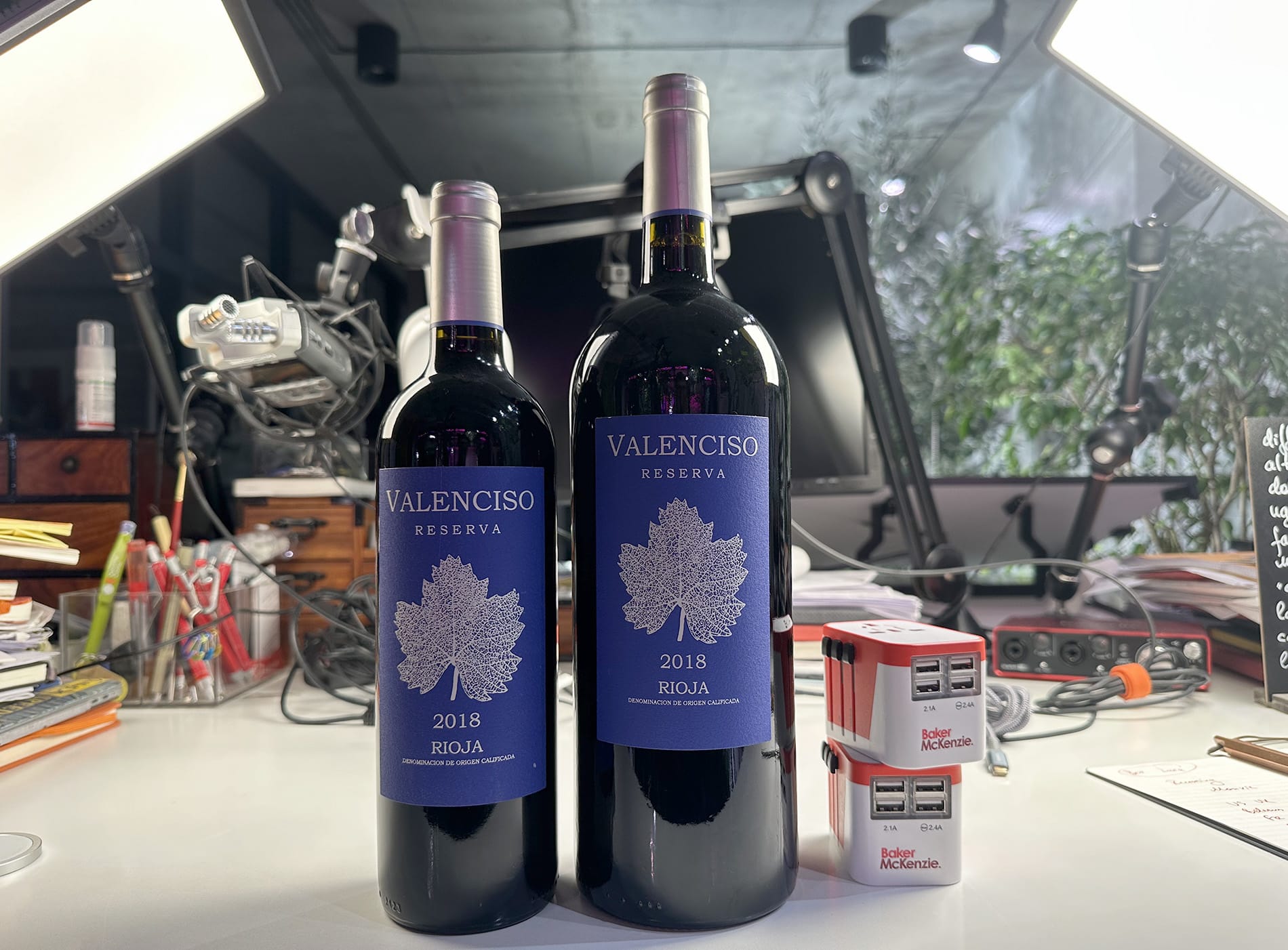
Some of you are more familiar than others, with my quest to move away from the larger commercial wine producer of top-quality Rioja (CVNE) to an independent winery – that would match, or exceed, the quality.
After several years of dead ends, we finally made it: the red wine of 2025's anniversary Summit, will come from Valenciso – a boutique producer owned and operated by Luis Valentín and Carmen Enciso.
The wine is a recommendation of Víctor de la Serna, a legendary Spanish journalist and one of the founders of El Mundo who kindly agreed to help us out in finding a Rioja that can beat Viña Real Gran Riserva, while being owner-operated (sadly, this turned out to be Víctor's last project). As often happens in the Summit's community, we all stand to benefit from the decades of experience of a friend of a friend, who speaks another language and brings invaluable insights.
Partners 2025
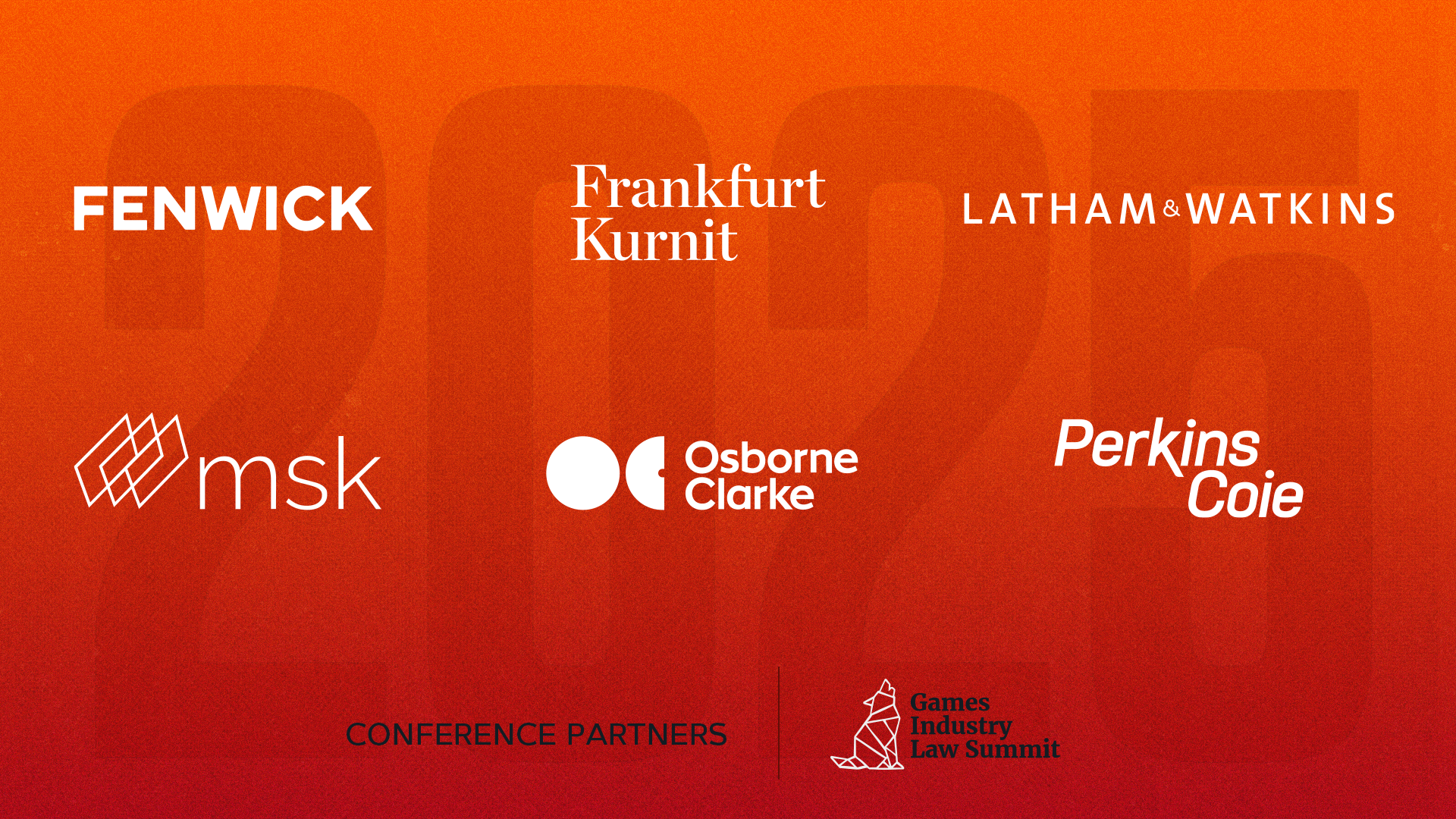
Speaking of invaluable, we're extremely grateful to our conference partners that committed to supporting the conferences in 2025:
Fenwick
Frankfurt Kurnit
Latham & Watkins
MSK
Osborne Clarke
Perkins Coie
The support of these firms makes it possible for us to run all the community extras, from the moot court to the social game.
Thank you!
Summit On Tour III

In about three months from now (oh no..!!), on April 1-3, 2025, we hope to see you at Summit On Tour III in Rome. As of today, the registration is 70% complete (with 56 people signing up for the morning runs – and no wonder, as we plan to run along the Tiber, as well as in Villa Borghese).
The program is in the early stages of gestation and includes such things as indemnity and termination clauses, war stories about contracts, a look at the bestseller clause, a discussion about managing expectations during MBO and aligning cultures between the firms and the studios, and a review of best practices in remote hiring, as well as an update on litigation around cloning.
If you'd like to attend, please apply before January runs out? Because of the venue's limitations, we've got a pretty hard cap on how many people we can sit (and feed) at this conference.
On Tour's Partners
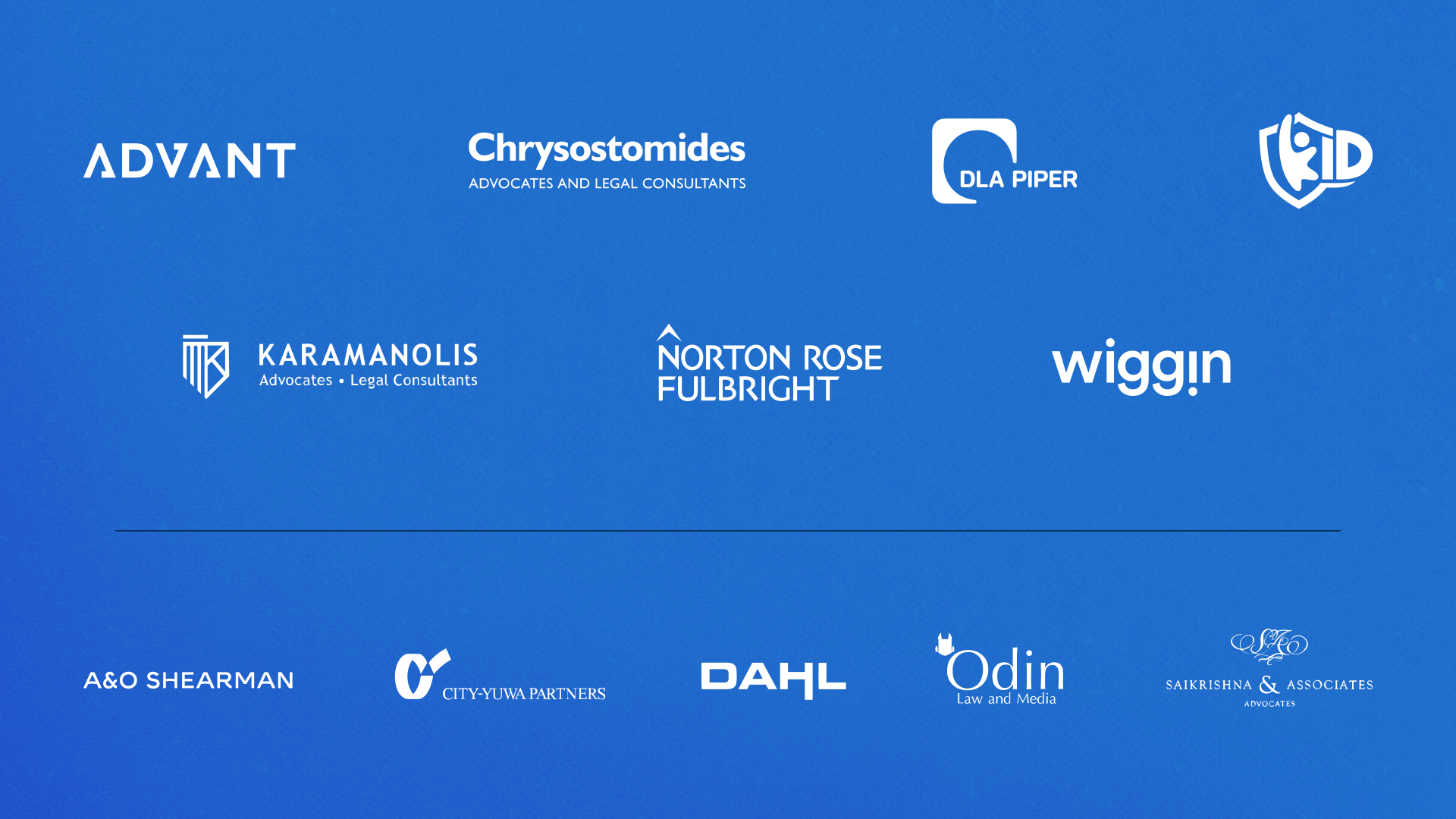
Rome is by far the biggest city among all that we've ever ran a conference in, but we're able to pull this off thanks to On Tour's partners: ADVANT, Chrysostomides, DLA Piper, k-ID, Karamanolis, Norton Rose Fulbright and, of course, Wiggin.
We're also grateful to A&O Shearman, City-Yuwa Partners, DAHL Law, Odin Law and Media and Saikrishna & Associates for the additional support that allows us to be more confident with catering and operations at the event!
Summit X

What you see above is one of the drafts of the key art for the anniversary edition of the Summit: Summit X, scheduled for September in Vilnius.
With this art, we celebrate the core message of the Summit: the collaborative spirit and the diversity of this community that enables us to cooperate, often at a short notice, across the continents.
With counsels from over 50 countries, we're able to run projects between China and Mexico, Iceland and Korea, Cyprus and Singapore, as if we were one distributed team. Our superpower is that we're all different, but we're also very much alike in our ability to think as a group, and help each other figure out the best way of helping studios operate, and grow.
The dates are September 2-4, 2025 and the registration is in process.
Happy New Year, Happy New Friends!
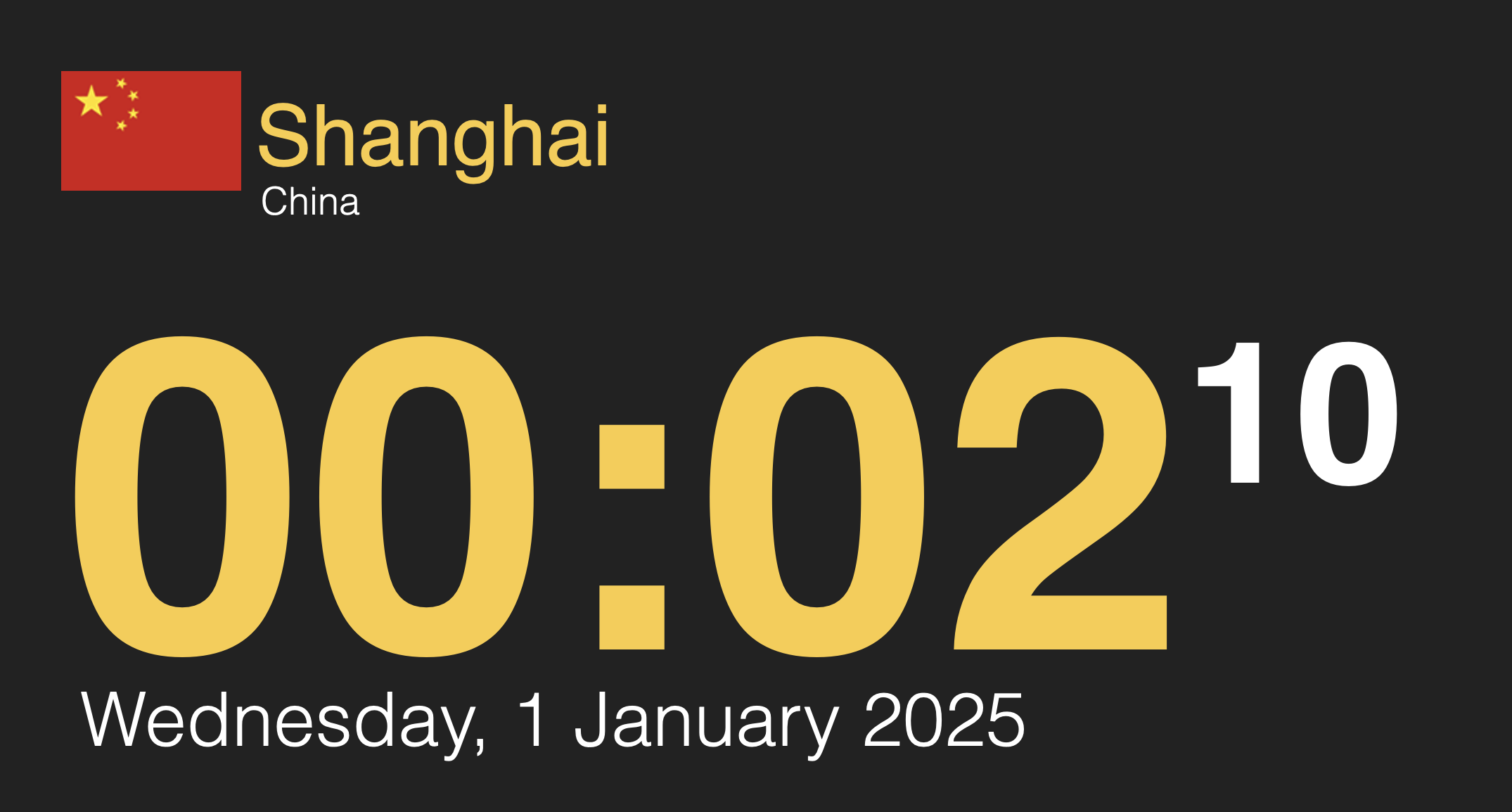
Two minutes ago, 2025 arrived to Shanghai: it's time to wrap this issue. Thanks for being a part of our community in 2024! Thanks for helping your peers with advice, and for sharing your experience – thanks for making this group of people very special, by remaining kind and empathetic, which is something we need more than ever, as the world braces for the impact of what 2025 may bring.
Happy New Year to all the in-house counsels, who make the life of production teams bearable and who allow game designers and product leads to bring their dreams to reality in a compliant way!
Happy New Year to all the regional law firm experts, who are here to save our collective bums when things go south, whether it's about filing with ECHR or litigating to defend a ban of a particularly toxic user!
Happy New Year – and happy new friends, which I'm sure you'll make in the coming year, as we continue to debate games industry matters around the world!
// Sergei, and everyone at Charlie Oscar
